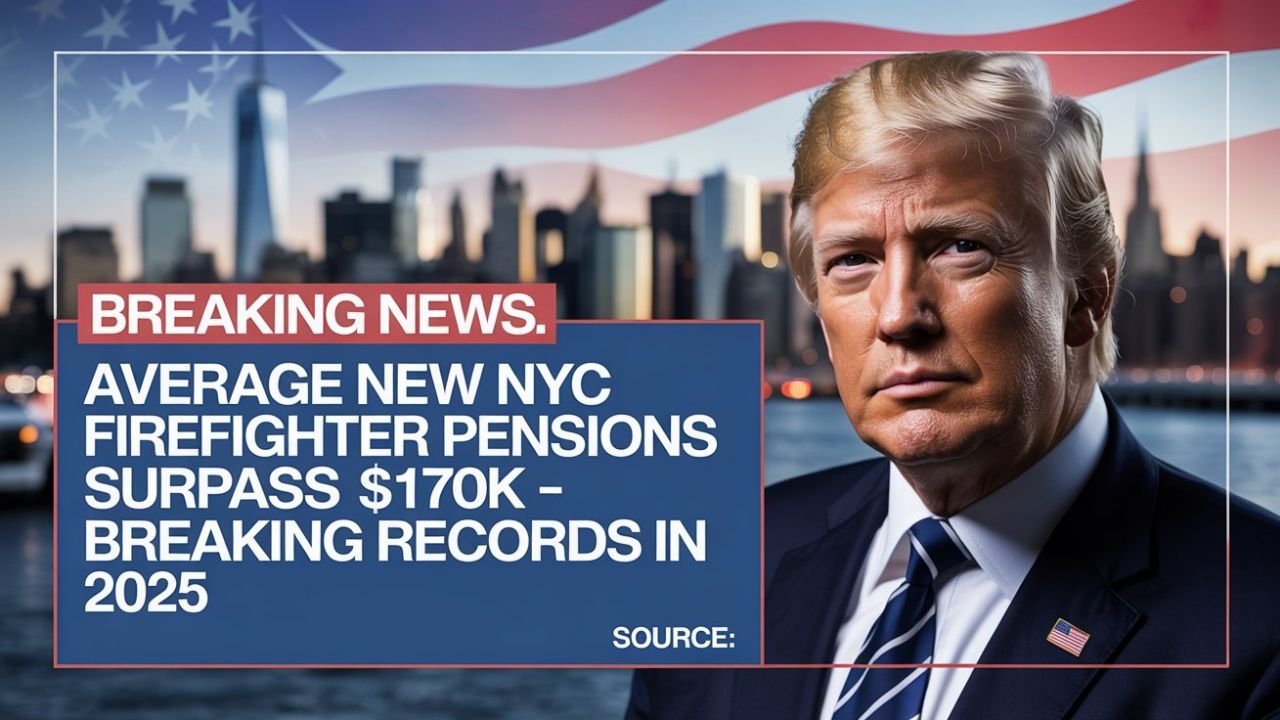The year 2025 has marked a historic milestone for New York City’s fire department retirees. Recent data shows that the average new firefighter pension has exceeded $170,000 annually, setting a new record and sparking debate about public sector pensions, sustainability, and taxpayer responsibility.
Record-Breaking Pensions in 2025
According to pension system reports, firefighters retiring in 2025 are walking away with average annual pensions of more than $170,000. This figure reflects a significant rise compared to previous years, underscoring the impact of overtime earnings, collective bargaining agreements, and pension calculations that include peak salary years. For many, these pensions represent the reward for decades of hazardous, high-stress service, where firefighters routinely put their lives on the line to protect New Yorkers.
| Retiree Name | Position | Annual Pension ($) |
|---|---|---|
| Patrick McEvoy | Former Captain | 404,730 |
| Michael Ajello | Assistant Chief of Department | 387,579 |
| John Sudnik | Chief of Department | 385,179 |
| Terence O’Connor | Firefighter | 368,052 |
| Frederick Saporito | Captain | 362,992 |
Why Firefighter Pensions Are Rising
Several factors have contributed to this surge in pension payouts:
-
Overtime Pay – Firefighters often log extensive overtime, and those earnings can be factored into final pension calculations.
-
Early Retirement Options – Many firefighters qualify for full pensions after 20–25 years of service, allowing relatively young retirees to receive benefits for decades.
-
Cost-of-Living Adjustments (COLA) – Annual increases tied to inflation have elevated pension amounts.
-
Union Negotiations – Strong labor contracts have ensured competitive retirement packages.
Reactions and Concerns
While firefighter unions highlight these pensions as well-deserved compensation for dangerous and demanding careers, critics point to the growing strain on New York’s public pension system. With rising payouts and a large pool of retirees, questions are being raised about the long-term sustainability of such benefits.
Taxpayer watchdog groups warn that the costs could eventually pressure city budgets, while supporters argue that these pensions are a small price to pay for the sacrifices made by first responders, especially in a city as challenging as New York.
Comparisons with Other City Workers
The $170K+ average pension for new firefighter retirees far surpasses those of many other public employees in New York City. Police pensions also remain high but slightly lower on average, while teachers and municipal workers receive significantly smaller retirement benefits.
Final Thoughts
The record-breaking firefighter pensions of 2025 highlight the balancing act between fairly compensating frontline heroes and managing the fiscal realities of New York City. As debates over pension reform and funding continue, one fact is clear: firefighting remains one of the city’s most demanding—and most rewarded—professions in retirement.
FAQs on NYC Firefighter Pensions Surpassing $170K in 2025
1. How do firefighter pensions in NYC work?
Firefighters in New York City are part of a defined-benefit pension system, where retirement income is based on years of service, final average salary, and overtime earnings. Most qualify for a full pension after 20–25 years of service.
2. Why are firefighter pensions higher than average salaries?
Because pensions are calculated using the final average salary, including overtime and extra pay, many firefighters retire with pensions that can exceed their base salary while working.
3. At what age can NYC firefighters retire with full pensions?
Most firefighters can retire with full benefits after 20–25 years of service, often in their late 40s or early 50s, allowing them to collect pensions for decades.
4. How does the $170K pension compare to other NYC workers?
Firefighter pensions are among the highest in the city. Police pensions are also high but slightly lower on average, while teachers and municipal workers generally receive much smaller retirement benefits.




